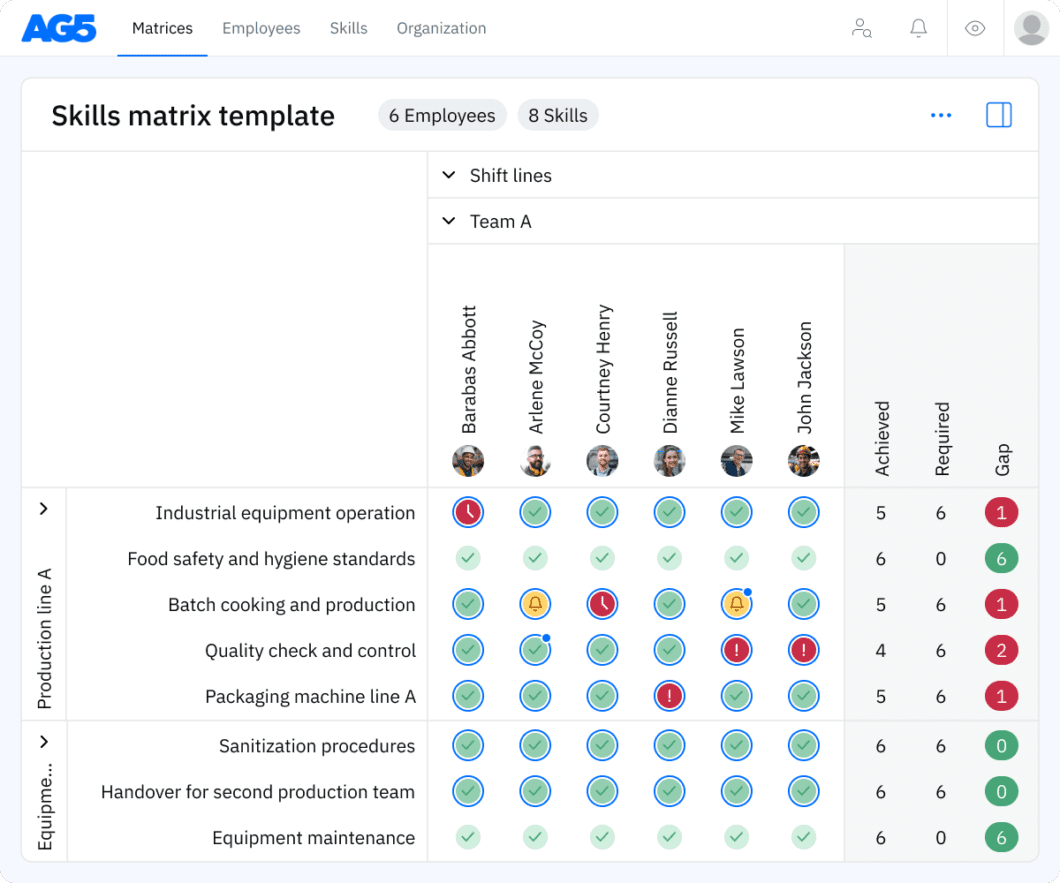Quality system improvement skills matrix template
A skills matrix template is a tool teams can use to assess their quality system improvement skills and knowledge
Download your free template here

Overview Copied
With our free quality system improvement skills matrix template, you will receive a clear overview of the skills that are present in your organization, as well as those that are missing. Using this information, you can develop and implement a plan to ensure that your employees’ skills are up to date, comprehensive, compliant, and ready for the future.
Lean process engineering
- Implementing value stream mapping (VSM) to identify waste
- Applying SMED (Single-Minute Exchange of Die) for quick changeovers
- Conducting time and motion studies to optimize workflows
- Implementing 5S methodology for workplace organization
- Analyzing and improving cycle times for increased efficiency
Compliance-driven quality auditing
- Conducting ISO 9001 internal audits with a focus on compliance
- Auditing manufacturing processes for regulatory adherence (e.g., FDA, CE)
- Implementing Corrective and Preventive Actions (CAPA) post-audit
- Ensuring traceability and documentation accuracy for audits
- Preparing for and managing third-party certification audits
Precision quality control
- Implementing Statistical Process Control (SPC) for real-time quality monitoring
- Conducting Gage R&R (Repeatability and Reproducibility) studies for measurement accuracy
- Utilizing coordinate measuring machines (CMM) for precise dimensional inspections
- Conducting non-destructive testing (NDT) for product integrity
- Analyzing control charts to identify variations and take corrective actions
Supplier quality integration
- Developing supplier qualification criteria based on quality standards
- Conducting supplier process capability analysis (e.g., Cpk, Ppk)
- Managing Supplier Corrective Action Requests (SCARs) effectively
- Integrating suppliers into the company’s quality management system (QMS)
- Monitoring and improving supplier performance through scorecards and reviews
Benefits Copied
Skills management software is important in quality system improvement, as it enables identifying and addressing skill gaps, supporting targeted training, and ensuring personnel with the right skills to enhance quality processes.
Download the free Excel Quality system improvement skills matrix template Copied
We also have a free Excel template available that you can download if you are not ready to get started with AG5. To download it, please complete this form here.
Author Copied
Revisions Copied
Tired of managing skills in Excel?
Say goodbye to Excel matrices. Start using AG5’s plug and play skill matrix software.
Recognized by G2 for Excellence in Skills Management

